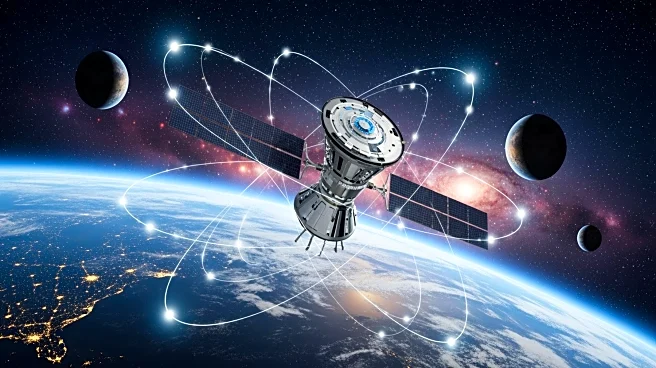What's Happening?
For the first time, the Chinese National Space Agency has proactively informed NASA about a potential collision between their satellites. This communication marks a significant development in space situational
awareness and international cooperation. Alvin Drew, director for NASA Space Sustainability, highlighted this event during the International Astronautical Congress in Sydney. Historically, NASA has been the one to alert China about possible conjunctions, advising them to hold position while NASA maneuvers. However, on October 1, the roles reversed, with China taking the initiative to notify NASA and offer to perform the necessary maneuver to avoid the collision.
Why It's Important?
This event signifies a major step forward in international space collaboration and safety protocols. China's proactive communication with NASA demonstrates its growing capabilities and commitment to space sustainability. Such cooperation is crucial for preventing satellite collisions, which can lead to significant debris and jeopardize other space missions. The incident reflects an evolving dynamic in space diplomacy, where mutual awareness and coordination are essential for maintaining the safety and functionality of space assets. This development may encourage further collaboration between space agencies, fostering a more cooperative approach to managing space traffic.
What's Next?
The successful avoidance of a satellite collision through international cooperation may lead to more formalized agreements and protocols between space-faring nations. As space becomes increasingly congested, establishing clear communication channels and joint strategies for collision avoidance will be vital. This incident could prompt discussions on creating a global framework for space traffic management, involving multiple countries and agencies. Enhanced collaboration may also lead to joint missions and shared technological advancements, benefiting global space exploration efforts.
Beyond the Headlines
The proactive stance taken by China in this situation highlights the importance of transparency and trust in international space relations. As countries expand their space programs, ethical considerations regarding the responsible use of space and the prevention of debris become increasingly important. This event may influence future policies on space sustainability and the development of technologies aimed at reducing the risk of collisions and debris generation.










